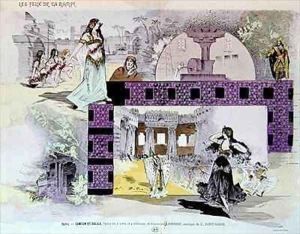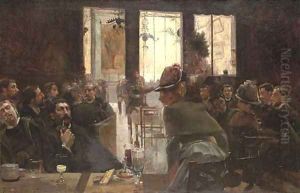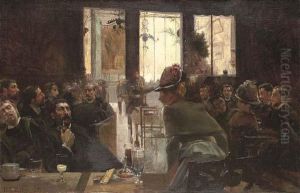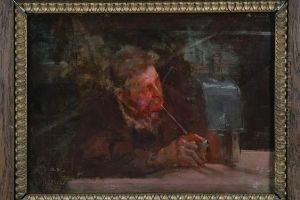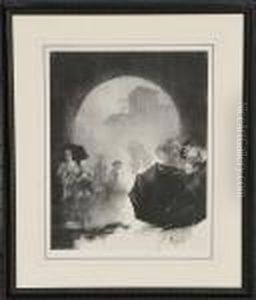Henri Patrice Dillon Paintings
Henri Patrice Dillon was a French-Brazilian painter, engraver, and illustrator, whose life and work form a bridge between the artistic traditions of Brazil and France in the late 19th and early 20th centuries. Born on April 24, 1851, in San Francisco, California, to a French father and an Irish mother, Dillon moved to Brazil in his childhood, where he would spend much of his life and develop his artistic career. He is often associated with the artistic movements of his time, particularly the Symbolist movement, though his work also exhibits characteristics of Academicism and early Modernism.
Dillon received his initial artistic training in Brazil but moved to Paris for further education, studying at the École des Beaux-Arts. This period in Europe was crucial for Dillon, as he was exposed to a wide range of artistic styles and movements, which influenced his own development as an artist. During his time in France, he exhibited at the Paris Salon, earning recognition and accolades for his work. Despite his success in Europe, Dillon maintained strong ties to Brazil, returning there and becoming a significant figure in the Brazilian art scene.
In Brazil, Dillon contributed to the artistic and cultural life through his involvement in various projects, including teaching and participating in the establishment of art institutions. He was known for his portraits, landscapes, and genre scenes, capturing the essence of Brazilian life and landscapes with a unique blend of realism and symbolism. Dillon's work is characterized by its delicate use of light and color, intricate compositions, and the integration of Brazilian themes and subjects, which helped define a national identity in Brazilian art.
Henri Patrice Dillon's legacy in both Brazil and France is marked by his role in the cultural exchange between the two countries during a period of significant artistic evolution. He died on November 12, 1909, in Paris, leaving behind a body of work that continues to be celebrated for its contribution to the development of modern art in Brazil. Dillon's paintings are held in several prestigious collections and museums, reflecting his enduring influence on the art world.
